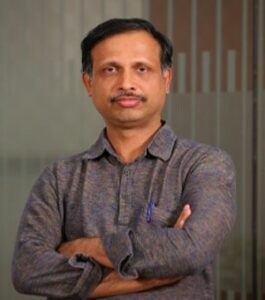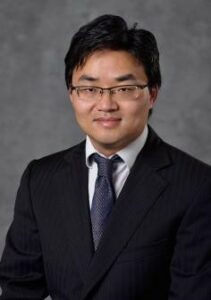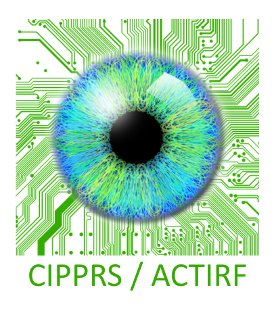Keynote Speakers

C. V. Jawahar
C. V. Jawahar is a Professor at International Institute of Information Technology (IIIT) Hyderabad, India. He worked with the Center for Artificial Intelligence and Robotics, Bangalore until December 2000, before moving to IIT, Hyderabad.
His interest lies in problems that overlap with computer vision, machine learning and multimedia systems. He has published in broad areas including document image understanding, audio visual processing and multimedia retrieval. He is also interested in applications in road safety, assistive technologies, healthcare, cultural heritage, and entertainment.

Hatice Gunes
Hatice Gunes is a Professor of Affective Intelligence and Robotics (AFAR) and the Head of the AFAR Lab at the University of Cambridge’s Department of Computer Science and Technology.
Her expertise is in the areas of affective computing and social signal processing cross-fertilising research in multimodal interaction, computer vision, signal processing, machine learning, and social robotics. She has published over 125 papers in these areas (H-index=34, citations > 6,000), with most recent works on lifelong learning for facial expression recognition, fairness, and affective robotics; and longitudinal HRI for wellbeing.
Her research highlights include RSJ/KROS Distinguished Interdisciplinary Research Award Finalist at IEEE RO-MAN’21, Distinguished PC Award at IJCAI’21, Best Paper Award Finalist at IEEE RO-MAN’20, Finalist for the 2018 Frontiers Spotlight Award, Outstanding Paper Award at IEEE FG’11, and Best Demo Award at IEEE ACII’09.
Prof Gunes is the former President of the Association for the Advancement of Affective Computing (AAAC), and was the General Co-Chair of ACII’19, and the Program Co-Chair of ACM/IEEE HRI’20 and IEEE FG’17. She is a member of the Human-Robot Interaction Steering Committee and was the Chair of the Steering Board of IEEE Transactions on Affective Computing (2017-2019). In 2019 she was awarded the prestigious 5-year EPSRC Fellowship as a personal grant to investigate adaptive robotic emotional intelligence for wellbeing and was named a Faculty Fellow (2019-2021) of the Alan Turing Institute – UK’s national centre for data science and artificial intelligence.

Jiliang Tang
Jiliang Tang is a University Foundation Professor in the computer science and engineering department at Michigan State University. He was an Associate Professor (2021-2022) and an Assistant Professor (2016-2021) in the same department. Before that, he was a research scientist in Yahoo Research.
He got his Ph.D. from Arizona State University in 2015 and MS and BE from Beijing Institute of Technology in 2010 and 2008, respectively. His research interests include graph machine learning, trustworthy AI, and their applications in Education and Biology. He authored the first comprehensive book “deep learning on graphs” with Cambridge University Press. He was the recipient of various career awards (2022 SIAM SDM, 2021 IEEE ICDM, 2021 IEEE Big Data Security, 2020 ACM SIGKDD, 2019 NSF), and 8 best paper awards (or runner-ups) including WSDM2018 and KDD2016.

Kristen Grauman
Kristen Grauman is a Professor in the Department of Computer Science at the University of Texas at Austin and a Research Director in Facebook AI Research (FAIR).
Her research in computer vision and machine learning focuses on visual recognition, video, and embodied perception. Before joining UT-Austin in 2007, she received her Ph.D. at MIT. She is an IEEE Fellow, AAAI Fellow, Sloan Fellow, and recipient of the 2013 Computers and Thought Award. She and her collaborators have been recognized with several Best Paper awards in computer vision, including a 2011 Marr Prize and a 2017 Helmholtz Prize (test of time award). She served/serves as an Associate Editor-in-Chief for PAMI and as a Program Chair of CVPR 2015, NeurIPS 2018, and ICCV 2023.

Marleen de Bruijne
Prof. Dr. Marleen de Bruijne is professor of AI in medical image analysis at Erasmus MC, The Netherlands, and at the University of Copenhagen, Denmark. She received an MSc degree in physics (1997) and PhD degree in medical imaging (2003) from Utrecht University. From 2003 to 2006 she was assistant professor and later associate professor at the IT University of Copenhagen, Denmark. Prof. de Bruijne has (co-)authored 230 peer-reviewed full papers in international conferences and journals, holds 7 patents, is the recipient of the prestigious NWO-VENI, NWO-VIDI, NWO-VICI, and DFF-YDUN awards, and is elected fellow of the MICCAI Society. She has (co)-supervised 30 PhD students. She is program chair of the international conferences MICCAI (2021) and MIDL (2021, 2020) and is a regular member of the program committees of MIDL, MICCAI, SPIE Medical Imaging, ISBI, and IPMI. She is chair of the EMBS Technical Committee on Biomedical Imaging and Image Processing and member of the MICCAI board, the ISBI Steering Committee, the Information Processing in Medical Imaging (IPMI) board, and the editorial boards of IEEE Transactions on Medical Imaging, Medical Image Analysis, Journal of MachinE Learning for Biomedical imAging, and Frontiers in ICT. Her research is in machine learning for quantitative image analysis and computer aided diagnosis in different application areas.

Tieniu Tan
Tieniu Tan received his BSc from Xi’an Jiaotong University in 1984, and his MSc and PhD from Imperial College London in 1986 and 1989 respectively. He subsequently moved to The University of Reading to work at the Department of Computer Science. He returned to China in 1998 to join the National Laboratory of Pattern Recognition (NLPR) at the Institute of Automation of the Chinese Academy of Sciences. He is currently Professor and Director of the Research Center for Intelligent Perception and Computing (CRIPAC) of the Institute. He has served as member of many committees and editorial boards including President of IEEE Biometrics Council, Vice President of IAPR, General Chair of ICPR2018 and Editor-in-Chief of Machine Intelligence Research. He has published over 600 papers in refereed international journals and conferences, with current research interests in biometrics, computer vision, visual content forensics and multi-modal intelligence. He is a Fellow of Chinese Academy of Sciences, TWAS, IEEE and IAPR, and an International Fellow of the UK Royal Academy of Engineering and a Corresponding Member of the Brazilian Academy of Sciences.

Xian-Sheng Hua
Dr. Xian-Sheng Hua is now a Distinguished Engineer, Vice President of Alibaba Group, Head of City Brain Lab of DAMO Academy, leading a team working on large-scale visual intelligence systems on the cloud, covering areas such as smart city, healthcare, industrial manufacturing, agriculture, and the Internet. Dr. Hua is an IEEE Fellow, and an ACM Distinguished Scientist. He received the B.S. degree and the Ph.D. degree in applied mathematics in 1996 and 2001, respectively, both from Peking University, Beijing, China. He has authored or coauthored more than 200 research papers and has more than 60 granted patents. His research interests include big multimedia data analysis, search, and mining, as well as pattern recognition and machine learning. Dr. Hua served or is now serving as an Associate Editor for the IEEE Trans. on Multimedia, ACM Transactions on Intelligent Systems and Technology and IET Smart Cities. He served as a Program Co-Chair for IEEE ICME 2013, ACM Multimedia 2012, and IEEE ICME 2012. He was one of the recipients of the 2008 MIT Technology Review TR35 Young Innovator Award for his outstanding contributions on video search. Dr. Hua also served as the leading general co-chair of ACM Multimedia 2020.

Yunhong Wang
xxxx





